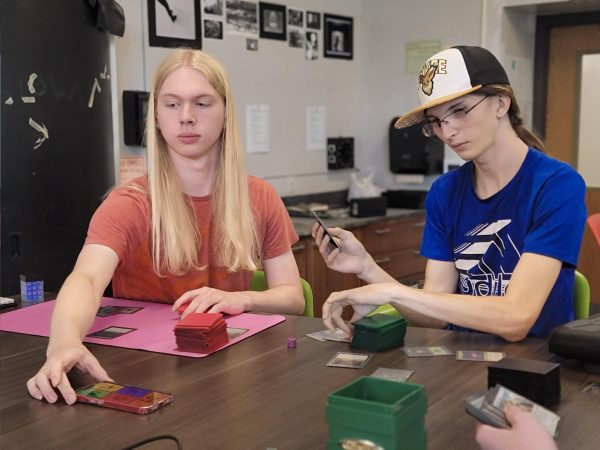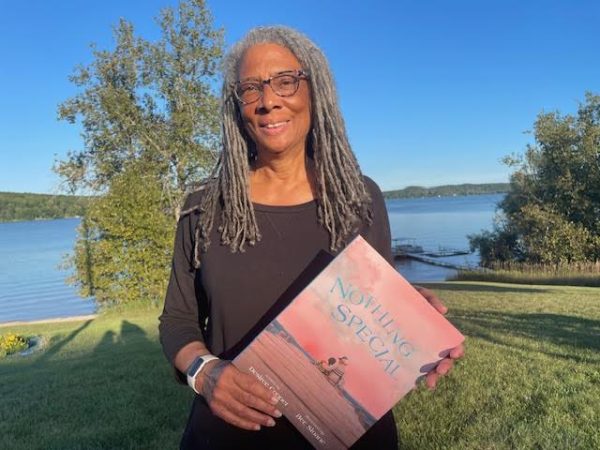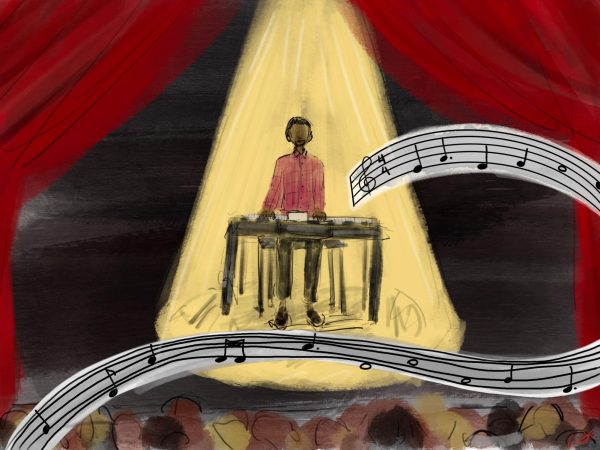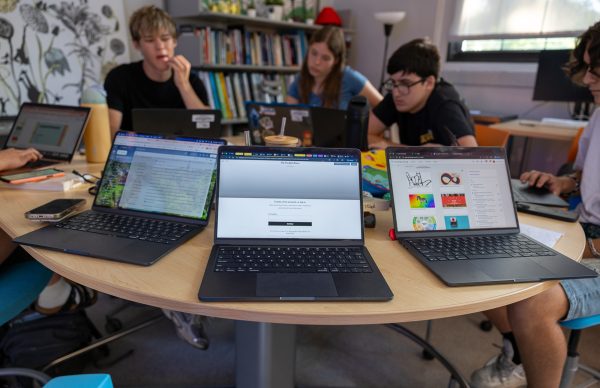Is watching movies in class worth it?
A narrator rambled on as Suephia Saam, a freshman at Community High School, watched pictures of famous moments in world history flash across the projector screen. The history film felt never ending to Saam; her eyes drooped and her yawns became longer as the movie progressed.
Watching movies in class can be considered a break from a lecture or an activity, but Saam has a different opinion. “I think watching them is a waste of time,” Saam said. “They’re really boring and I don’t think they help teach.” In her opinion, educational films can often times be off topic and a little confusing to students. Saam believes that movies can make subjects more perplexing because they explain too much information at once.
Gabby Hornak, a freshmen at Community High School, agrees with Saam. She prefers more hands on learning and activities rather than watching films. “I think they’re boring,” Hornak said. “They don’t cover the unit specifically so they’re all over the place in a way.”
On the contrary, some teachers show movies to explain concepts through different forms of media. “If there’s not a quality movie then I don’t tend to show them,” said Matt Johnson, an English teacher at Community High School. This is Johnson’s first year teaching at Community, but his eighth year teaching in total. He teaches four English classes: Shakespeare, Harlem Renaissance, Art of Writing and Historical Fiction. “If there is, sometimes I will [show one] and often times we’ll have a discussion about the adaptation of the movie and how it discusses the themes and ideas of the book.” Johnson expends a lot of energy trying to find educational, but also entertaining, films to show in class. For example, for Shakespeare he tends to find a more action-packed movie with famous actors to show, instead of a production from the Royal Shakespeare Company. The students probably would not like that production as much. “I try to find ones that have a more Hollywood aspect so that they have more appeal,” Johnson said. “But at the same time help them understand the educational concepts.”
The amount of energy spent on finding the right movies to show in class can pay off. Kasey Neff, a freshman at Community High School, enjoys watching films in class and finds that they help her in the learning process. “I really like watching movies compared to listening to a lecture and taking notes,” Neff said. “I learn better from watching things. For me, it’s better to see real life examples about what I’m learning.” She does not think that they are a waste of time to watch because she thinks it’s easier to understand a subject when she sees real people learning the same things she is.
Experiencing a subject in a real life situation is exactly what Johnson wants the movies to help students with. He believes that they are beneficial to the learning process and he would not show them if he thought otherwise. “I only use them if I think it’s going to enhance their understanding of the themes or characters or anything about their understanding of the work,” Johnson said. This is why he shows them occasionally and why he often does not. For Johnson, there is always a purpose behind everything he displays to students in class; he never wastes a minute of class time.
However, some do not believe this. Lindsey Williams, a sophomore at Community High School, thinks that movies are shown when teachers do not feel like teaching the material themselves. “If they’re informational then they can help you solidify facts,” Williams said. “But if they’re a time filler then I think it’s kind of ridiculous.” Similar to most students, Williams comes to school to be taught by her teachers, not a video.
Sean Tichenor, a sophomore at Community High School, has a related opinion. He thinks that the material in the videos shown is redundant and boring. In addition, he also wishes that his teachers would personally teach them more new things, instead of topics that they already covered in class through the movies. “Most of them are just things we’ve already learned,” Tichenor said. “It would be better to be actually taught the material by teachers.” For him, it makes the subjects more confusing when there is more than one source teaching him the information: the teacher and the video.
Although, some teachers think that using more than one source for teaching purposes is a good idea. Laurel Landrum, a Spanish teacher at Community High School believes that films can explain first hand information and stories in ways that would not be the same if she taught them herself. This is her tenth year teaching at Community, and in her opinion students receive another experience with information when they see it with their own eyes. “I think film is an important way to disseminate information,” Landrum said. “I think that it’s important for me to interpret and to help students process. Somebody’s put an awful lot of thought into making that film, and the message that they have is more meaningful than some of the comments I can make.” She believes that films in class are supposed to be enjoyable but also culturally important.
Johnson agrees with Landrum’s perspective. In his class, just reading a Shakespeare production would not be enough to fully understand what is going on. He believes the movies explain more than he could as the teacher, and help students appreciate the amazing work of literature that Shakespeare wrote. “It’s a play and for a play you have to see it acted out,” Johnson said. “It’s not the same just on the page.”









